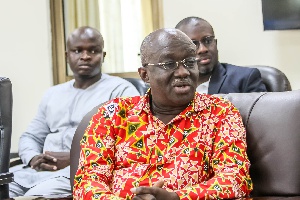The Aviation Ministry says it will not relent in negotiating more routes for airlines operating in the country as it strives to make Ghana an aviation hub.
Ghana currently has over 65 Bilateral Air Service Agreements (BASA) with countries in both Europe and the Americas permitting airlines to operate into these areas.
Recently at the International Civil Aviation Authority’s Air Service negotiations held in Kenya, Ghana signed agreements with Jamaica, Canada, Guyana and Seychelles all to pave way for designated Airlines from Ghana to fly into these countries
However, Director at the Ministry of Aviation, Ellis Hue Tamakloe said negotiating for more destinations will make Ghana more attractive to Airlines.
“The signing of all these Bilateral Air Service Agreements is in line with helping us achieve our vision of becoming an aviation hub within the sub-region. I must say that if you do not have enough BASA’s you cannot attract the number of Airlines you want in this country.”
He said, “So what I want to say is that we will continue to negotiate more BASA’s as long as it takes and as long as safety and security is not compromised to ensure that we become the light of Africa”.
What is Bilateral Air Service Agreements (BASA’s)?
Bilateral Air Service Agreements (“BASAs”) are treaties signed between Countries to allow international commercial air transport services between territories of the signing countries. BASA’s enable movement of persons, cargo, trade and tourism via air transport.
These agreements provide the framework under which identified airlines from the two countries fly into designated ports in each other’s country.
It usually covers issues regarding traffic rights, use of intermediate routes, type of aircraft, safety standards, competition, policy on ownership, design and control of airlines, in order for both countries to benefit from the agreement, fares and tax issues.
Negotiations to enter into BASAs are usually spearheaded by the Ministry of Aviation after extensive consultation with aviation regulatory authorities and concerned institutions, and then approval from the parliament of Ghana.
Business News of Tuesday, 5 March 2019
Source: goldstreetbusiness.com

















